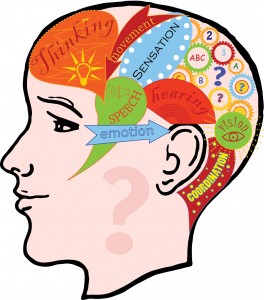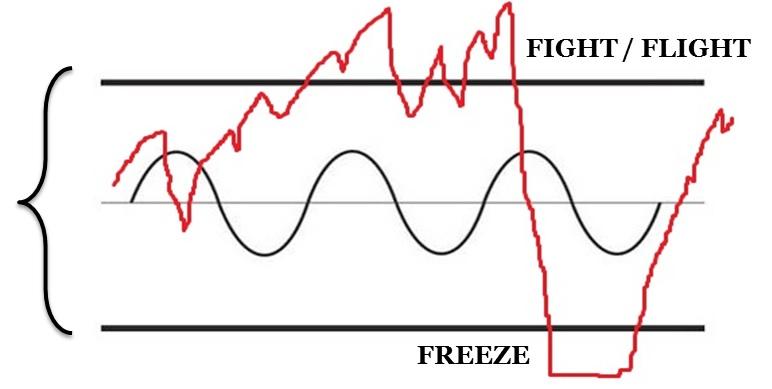Couples often seek counselling thinking their problem is a “communication issue.” However, I believe there is a deeper issue that creates communication difficulties: an inability to self-regulate and co-regulate. What does “regulation” mean?
When you are feeling calm, centered, grounded, relaxed, present, and available for social interaction, you are in a regulated state. In a regulated state, you are able to use the executive functions of your brain: decision-making, planning, and critical thinking.
Contrast that state to a dysregulated state: when you feel either “too up,” as in anxious, nervous, restless, scared, and manic, or “too down,” as in depressed, lethargic, withdrawn, ashamed, or disassociated.
This is no time for important conversations, as the outer layer of the brain, the cortex, has stopped functioning. Unfortunately, many couples do try to communicate and sort things out while either one or both partners are dysregulated. Unkind words are spoken and the disconnect is worsened.
Learning to self-regulate requires paying attention to your internal cues: what sensations are you aware of in your body? Examples: tension, knots, pain, numbness, tingling. Try to discern if you are hyper- or hypo-aroused (too up or too down). Next, learn ways to bring yourself into balance. Grounding techniques, such as noticing your feet on the floor and rocking them very slowly, and feeling the chair beneath you, can work wonders.
You can also help your partner regulate if you are already grounded and calm. Just your presence can help your partner relax and feel safe, but a warm hug, a soft tone of voice, and gentle eyes will have the most impact. Once you are both regulated, see how your communication magically improves!






